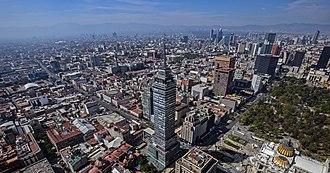Ghana’s Buz Stop Boys: Young Changemakers Transforming Accra’s Waste Management Landscape
In the rapidly expanding cityscape of Accra, where urban growth often outstrips infrastructure development, managing waste effectively remains a formidable challenge. Amidst overflowing bins and scattered litter, a passionate group of young professionals—known as the Buz Stop Boys—has emerged as a beacon of hope. United by their commitment to fostering a cleaner and more sustainable city, these activists are pioneering grassroots initiatives and leveraging innovative approaches to tackle Accra’s mounting waste problem. As environmental consciousness rises across Ghana, the Buz Stop Boys exemplify how youth-driven movements can spark meaningful change at the community level. This article explores their impactful projects and highlights how their collective dedication is reshaping Accra’s environmental future.
Youth-Led Urban Cleanliness Initiatives Revitalizing Accra
The Buz Stop Boys represent an energetic coalition of young professionals determined to improve urban sanitation throughout Ghana’s capital. Since forming their group, they have galvanized local residents through diverse outreach efforts such as coordinated clean-up campaigns, educational seminars on sustainable waste practices, and partnerships with neighborhood businesses. Their work has not only enhanced public spaces but also nurtured civic pride among citizens who increasingly recognize their role in maintaining cleanliness.
A distinctive feature of their approach is harnessing digital platforms—including Instagram and Twitter—to amplify awareness about proper waste disposal and recycling habits. By combining traditional community engagement with modern marketing techniques, they have successfully broadened participation across various demographics.
Key milestones achieved by the Buz Stop Boys include:
- Monthly Community Clean-Ups: Organizing volunteers to clear litter from streets and public areas.
- Environmental Education in Schools: Conducting workshops that instill eco-friendly values in students.
- Collaborations with Municipal Authorities: Working alongside local government agencies to optimize garbage collection systems.
| Program | Tangible Outcomes | ||||||||||||||||
|---|---|---|---|---|---|---|---|---|---|---|---|---|---|---|---|---|---|
| Community Clean-Up Drives | Collected over 6 tons of refuse within eight months. | ||||||||||||||||
| School-Based Workshops | Taught environmental stewardship principles to 3,000+ students. | ||||||||||||||||
| Civic Partnerships | Boosted municipal waste pickup efficiency by 35%.Harnessing Youth Power: Addressing Environmental Challenges in AccraYouth involvement has become instrumental in confronting Accra’s escalating ecological issues. The Buz Stop Boys stand out as exemplary leaders mobilizing communities toward cleaner neighborhoods through hands-on activities that reduce pollution while raising environmental awareness. Their grassroots model emphasizes inclusivity—engaging schools, small enterprises, families—and promotes shared responsibility for urban hygiene beyond mere cleanup events. Core activities spearheaded by this group encompass:
Recent data collected during one such event illustrates significant community engagement:
These figures underscore how youth-led initiatives can generate measurable improvements while cultivating an enduring culture of sustainability within urban populations. Strategies for Sustaining Local Cleanup Efforts Across Communities in Accra and Beyond For lasting success beyond initial enthusiasm phases like those demonstrated by the Buz Stop Boys’ movement requires embedding sustainable practices into everyday life at all societal levels—from individuals up through institutions. Communities aiming to replicate or support similar endeavors should consider adopting these best practices:
Additionally monitoring progress via systematic data collection enhances decision-making processes regarding resource allocation & program refinement over time — tracking metrics like types & quantities recycled helps identify priority areas needing attention:
|















